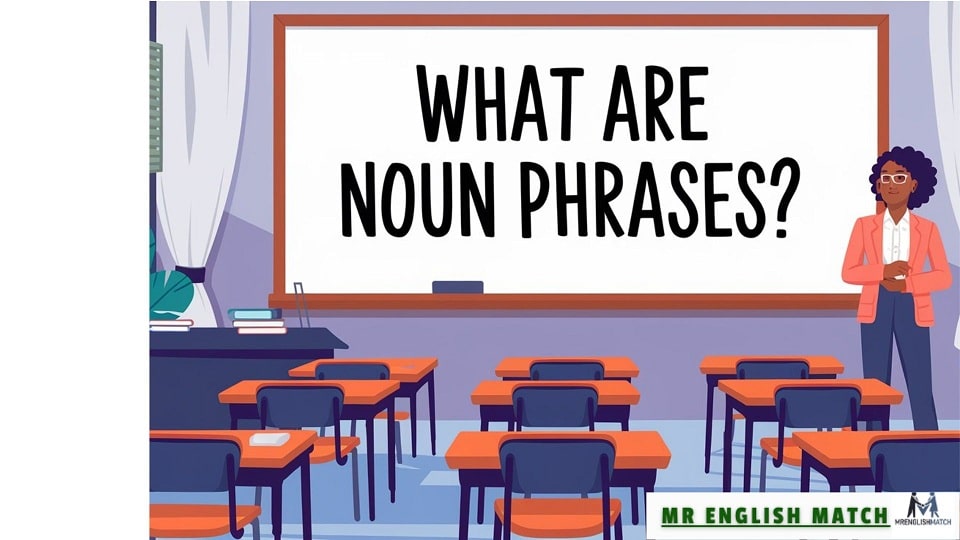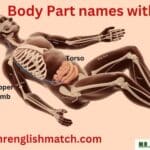Language is a powerful tool, and at its heart lies the phrase, a group of words that work together. But what is a phrase exactly? A phrase is a group of words that act as a single unit within a sentence. Unlike a full sentence, a phrase doesn’t always have both a subject and a verb, but it contributes meaning. In this article, we focus on noun phrases, their significance, how they differ from other phrases, and why they matter in writing and speech.
What Are Noun Phrases?
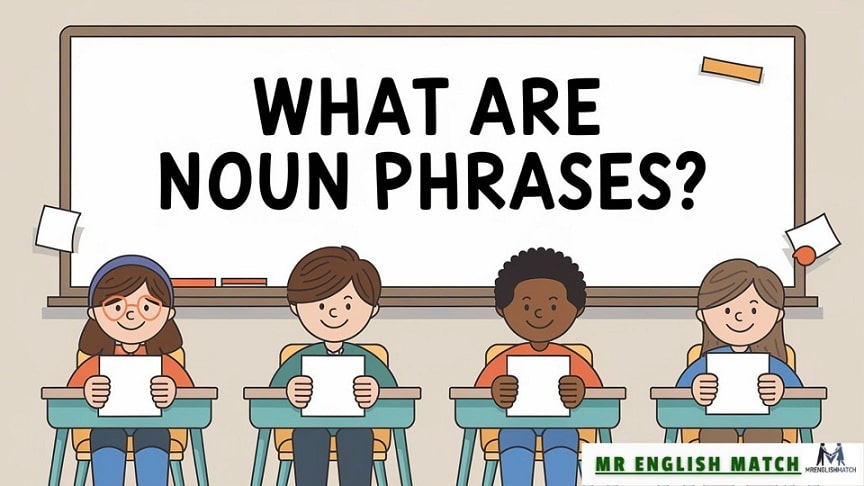
A noun phrase is a group of words that together function as a noun within a sentence. It often includes a noun (or pronoun) and any modifiers, such as adjectives, articles, or other descriptors. Think of it as a way to provide more context or detail about a noun. For example, in “the big red apple,” “the big red apple” is the noun phrase. It tells us more about what type of apple is being discussed.
Nominal phrases are another term often used interchangeably with noun phrases, though in some linguistic contexts, they may carry slightly different implications. When you ask what is a nominal phrase, it refers broadly to expressions that can function as a noun, such as an entire clause acting as a noun within a sentence.
Nominal Phrase Examples
Consider the phrase “the man standing over there.” This nominal phrase gives us specific information about “the man,” making the meaning clear. Similarly, phrases like “an eight-year-old boy with a gun who tried to rob a sweet shop” illustrate how rich detail can be embedded in a phrase to create vivid mental images. Whether you’re telling a story or explaining an idea, noun phrases add depth.
| Example Noun Phrases | Description |
|---|---|
| People like to have money. I am tired. | Simple statement with two separate noun phrases. |
| A man with a gun. | Descriptive phrase providing detail. |
| The man standing over there. | Identifies a specific person with added context. |
| I’ve got no decent shoes to wear. | Adds detail to “shoes,” specifying their state. |
Main Clause and Supplementary Noun Phrase
Every sentence has a main clause, which can stand alone as a complete thought. Within these clauses, noun phrases can act as essential or supplementary elements. The main clause and supplementary noun phrase relationship often clarifies or adds depth. For example, in “She noticed the cat, a black and white stray, sleeping on the porch,” the main clause is “She noticed the cat,” while “a black and white stray” serves as a supplementary noun phrase adding more description.
Coordinated noun phrases are essential in creating fluent and cohesive sentences. For example, a sentence like “He bought a book and a pen” shows how coordinated noun phrases connect ideas smoothly, a skill critical readers often recognize.
Noun Phrase Examples
Understanding noun phrase examples can be helpful. Let’s look at a few: “You should take something to read,” “He’s still very fit, in spite of the fact that he’s over eighty,” and “the man we met yesterday.” Each illustrates the use of noun phrases to make sentences clear and engaging.
There are 3 lists of common phrases examples. Each list contains 20 phrases in English.
Daily Use Noun Phrases
This list of daily use noun phrases contains examples of 20 phrases in English.
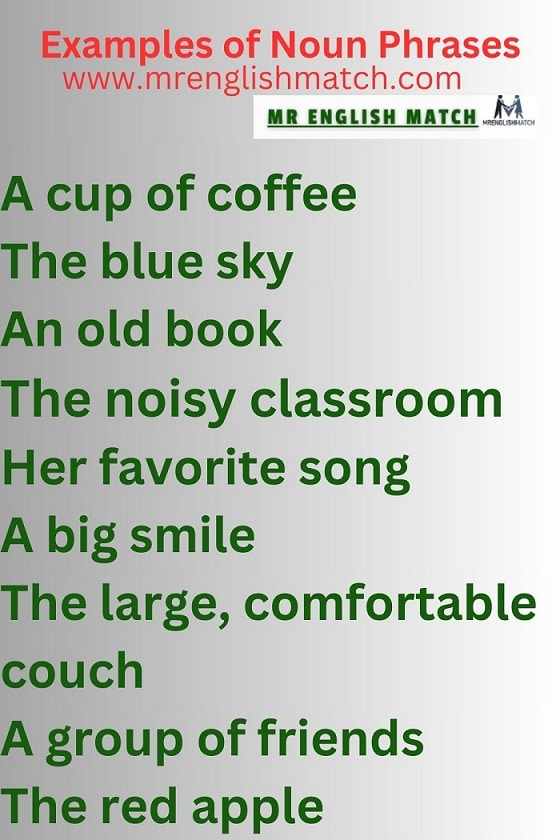
- A cup of coffee
- The blue sky
- An old book
- The noisy classroom
- Her favorite song
- A big smile
- The large, comfortable couch
- A group of friends
- The red apple
- My new phone
- The tall building
- A strong breeze
- The local park
- His bright idea
- The broken chair
- A box of chocolates
- The family photo
- My pet cat
- A shiny coin
- The last page
Everyday Noun Phrases
This list of everyday noun phrases contains 20 phrases in English.
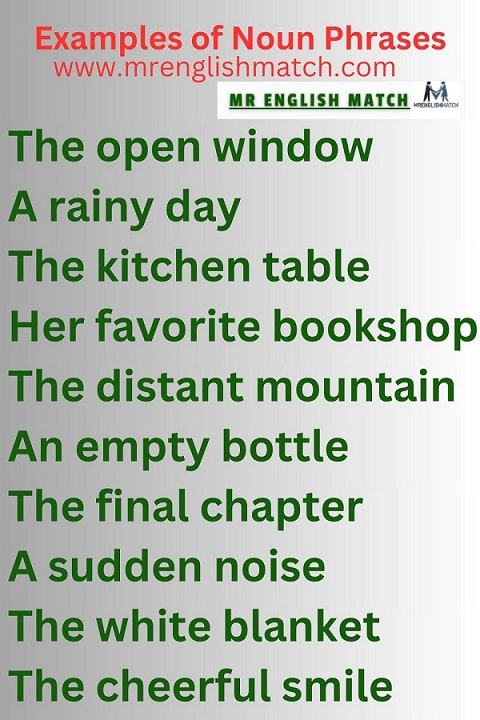
- The open window
- A rainy day
- The kitchen table
- Her favorite bookshop
- The distant mountain
- An empty bottle
- The final chapter
- A sudden noise
- The white blanket
- The cheerful smile
- A warm cup of tea
- The busy street
- An unforgettable trip
- The glowing candle
- The leather jacket
- My best friend
- A pair of shoes
- The crowded bus
- The sandy beach
- His new job
Common Noun Phrases
This list of common noun phrases contains examples of 20 phrases in English.
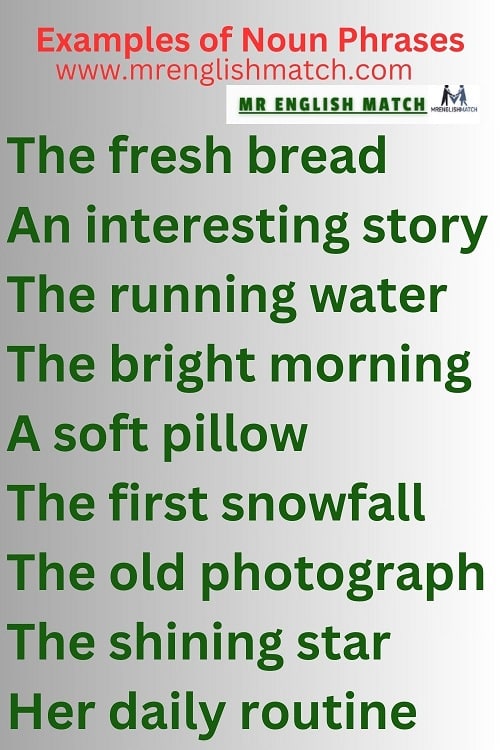
- The fresh bread
- An interesting story
- The running water
- The bright morning
- A soft pillow
- The first snowfall
- The old photograph
- The shining star
- Her daily routine
- An online purchase
- The colorful garden
- A quick glance
- The black cat
- The noisy neighbors
- The movie night
- A handwritten note
- The warm blanket
- His gentle touch
- The silent room
- The scented candle
How to Identify a Noun Phrase
To identify a noun phrase, start by locating the main noun and then any accompanying words that modify or give more context. If you have a sentence like “She saw the tall man with a hat,” the noun phrase is “the tall man with a hat.” Remember, it must function as a noun unit within the sentence.
Noun Clause vs. Noun Phrase
Noun clauses contain a subject and a verb and act as nouns within sentences. While noun phrases don’t have a verb, they serve a similar purpose. For example, in “What he did was impressive,” the clause “What he did” acts as a noun. Understanding the difference between these can clarify complex structures.
Here are five examples highlighting noun phrases and noun clauses:
- Noun Phrase: She admired the bright red flowers in the vase.
Noun Clause: She admired how the flowers bloomed so quickly. - Noun Phrase: The loud music from next door kept everyone awake.
Noun Clause: Why the music was so loud was a mystery to us. - Noun Phrase: He showed us a picture of his family vacation.
Noun Clause: He explained where they went for vacation in great detail. - Noun Phrase: The idea of moving to another city worried him.
Noun Clause: What worried him most was leaving his friends behind. - Noun Phrase: She enjoys freshly baked bread every morning.
Noun Clause: She enjoys whatever her mother bakes.
Noun Phrases in Everyday Use
In common phrases in English, noun phrases appear regularly. They make sentences rich and engaging. Consider daily use phrases like “Take care” or “Let’s go outside.” They may seem simple, but noun phrases can transform them into impactful expressions. For example, “The young girl with bright eyes waved” is more descriptive than just “The girl waved.”
Exploring noun phrases opens up a new understanding of language. Popular phrases often use them to provide context, engage readers, and create memorable statements. Whether you’re looking at a formal offer to buy crossword clue or wondering if “the building across the street is a clause,” understanding these phrases unlocks hidden layers of meaning.
You might like also:
FAQs About Noun Phrases
What is a noun phrase with examples?
A noun phrase is a group of words that functions as a noun within a sentence. It typically contains a noun and its modifiers, which could include adjectives, determiners, or other descriptive elements. For example, “the tall tree” is a noun phrase where “tree” is the main noun, and “the tall” modifies it. Another example is “a beautiful painting of the sunset,” which gives more detail about the noun “painting.”
How do you identify a noun phrase in a sentence?
To identify a noun phrase in a sentence, locate the main noun and any accompanying words that describe or give context to it. A noun phrase can appear as a subject, object, or complement. For example, in the sentence “She bought a new book,” “a new book” is the noun phrase because it centers on “book” with modifiers “a” and “new.” Recognizing noun phrases helps clarify sentence structure and meaning.
What is the difference between a noun phrase and a noun clause?
The key difference is that a noun phrase contains a noun and its modifiers but does not include a verb, while a noun clause contains a subject and a verb and acts as a noun. For example, “the beautiful park” is a noun phrase, while “what she said” is a noun clause. The clause acts as a noun within a larger sentence, providing additional context or serving a grammatical function.
Can a single word be a noun phrase?
Yes, a single noun can function as a noun phrase when it stands alone in a sentence. For example, in the sentence “Birds fly,” the word “birds” serves as a noun phrase. While it doesn’t have modifiers, it still functions as a noun phrase since it acts as a subject. However, noun phrases often include additional words for context.
What are some common noun phrases used in everyday English?
Common noun phrases in everyday English often consist of a noun with modifiers to add detail or specificity. Examples include “the red car,” “a cup of coffee,” “her new dress,” “the last train,” and “my old friend.” Such phrases are frequently used in daily conversations to convey meaning with more clarity and depth.
What is a nominal phrase, and how is it different from a noun phrase?
A nominal phrase is often considered synonymous with a noun phrase in grammar. Both refer to expressions that function as nouns in a sentence, although some contexts may use “nominal phrase” more broadly to include clauses or phrases acting as nouns. For example, “the decision to leave” and “what he believes” can be nominal expressions, with the first as a noun phrase and the second as a clause.
How can you identify a noun clause in a complex sentence?
To identify a noun clause in a complex sentence, look for a group of words containing a subject and a verb that acts as a single unit performing the role of a noun. For example, in the sentence “I believe that she will win,” the clause “that she will win” serves as a noun and acts as the object of “believe.” Noun clauses often begin with words like “that,” “what,” “who,” or “whether.”
Why are noun phrases important in English grammar?
Noun phrases are important because they add detail and context to sentences, making speech and writing more engaging and precise. By using noun phrases, speakers and writers can provide more specific information about a subject, object, or idea. For instance, “the friendly dog next door” gives more context than simply “dog,” enhancing clarity and richness in communication.
What are examples of noun phrases vs. noun clauses?
Examples of noun phrases include “a red apple,” “the busy street,” and “her favorite song,” where each phrase revolves around a noun and modifiers. In contrast, examples of noun clauses are “what she likes,” “that he finished the job,” and “whether they will come.” While both serve as nouns in sentences, noun clauses contain a subject and verb.
How do coordinated noun phrases function within a sentence?
Coordinated noun phrases combine two or more noun phrases with conjunctions like “and,” “or,” or “but” to link ideas and add complexity. For example, in “She bought a laptop and a phone,” “a laptop” and “a phone” are coordinated noun phrases joined by “and.” This structure creates fluidity and balance in sentence construction.
What are 10 examples of phrases?
Here are a few:
- In the dark alley
- My best friend
- A cup of coffee
- Shining brightly in the sky
- Near the beach
- Without a second thought
- A box of chocolates
- His older brother
- Walking down the street
- On the top shelf
Conclusion
understanding noun phrases and noun clauses is essential for mastering sentence structure in English. While both serve similar functions by acting as nouns, the key difference lies in their components. A noun phrase consists of a noun and its modifiers, without a verb, while a noun clause includes both a subject and a verb. By recognizing these structures, you can improve your writing and speaking skills, creating clearer and more complex sentences. Mastering these concepts allows for better communication and helps you express ideas more precisely.


